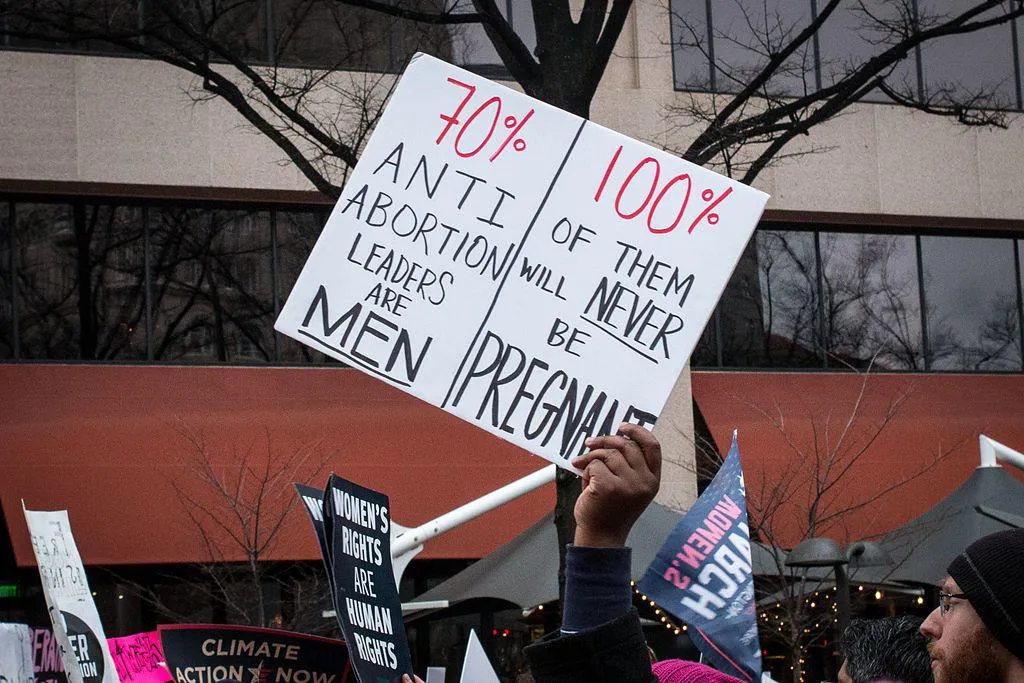Kentucky lawmakers are expected to consider adding exceptions for rape and incest to the state’s near-total abortion ban during the current 2024 legislative session in Frankfort. But abortion rights advocates say exemptions alone aren’t enough.
Health providers in Kentucky and other states that already have limited exceptions to their state’s abortion bans (in Kentucky there are currently exceptions for the life and health of the mother) are increasingly sending patients out of state to avoid liability impacting their licensure and livelihoods, according to Planned Parenthood Alliance Advocates Kentucky state director Tamarra Wieder. She cites Indiana – where a near total abortion ban includes exceptions for rape, incest, protecting the life and health of the mother, and fatal fetal health conditions– as a state where Wieder said abortion exceptions have been met with skepticism and even fear.
“There’s so much riding on hospitals and doctors’ licenses that they don’t feel safe providing the care – even if a patient fits the criteria,” Wieder told LINK nky on Monday.
The result in Indiana, she said, has been abortion patients going out of state for care to legal states like Illinois. The CNHI news service reported in Sept. 2023 that “Illinois by far has experienced the largest increase in Hoosiers receiving either a surgical or medical abortion there” with the number of Indiana patients seeking care at some Illinois health centers increasing by as much as 120%.
“Hospitals do not feel safe in complying” with the exceptions, Wieder said. ”There are chilling precedents that are scaring hospitals from doing best practices when it comes to patient care around abortion. And we see this all across the country for rape and incest exceptions. Even if you have a rape and incest exception people aren’t able to access them.”
In Kentucky, providers face felony charges for performing an abortion outside the state’s trigger ban exceptions. Civil liabilities as well as professional disciplinary action are also possible in Kentucky and elsewhere.
According to Wieder, a push for exceptions should be replaced with a repeal of Kentucky’s abortion ban if the goal is improved access for those who meet exceptions but can’t access in-state care.
“I know that sounds like I’m not compromising, but unfortunately, with the hurdles in place for care and the chilling effect on providers, hospitals are not going to be providing the care” in ban states like Kentucky, said Wieder.
“We’ve seen it play out across the country and these exemptions – they just provide more hurdles to care.”
She cited the Kate Cox case in Texas as an example. Cox was 20 weeks pregnant when she was diagnosed with a non-viable pregnancy that her doctor reportedly diagnosed as negatively impacting her health. Cox, however, was denied access to an in-state abortion, although Texas’ total ban has exceptions for the life and health of the mother.
The Texas Supreme Court ruled in Dec. 2023 that Cox (who eventually left the state to seek care) did not qualify for an exception despite her doctor’s assessment.
Currently, 21 states ban or restrict abortion, including Kentucky, where a total abortion ban (with exceptions for the life or health of the mother) was triggered with the US Supreme Court 2022 ruling overturning Roe v. Wade. Eight of those 21 states have exceptions for rape and incest and seven have exceptions for lethal fetal conditions, according to KFF (formerly called the Kaiser Family Foundation).
All states with total or partial bans have exceptions for the life of the mother, according to the KFF. Fifteen of those states have exceptions to protect the mother’s health.
Thirteen abortions were performed in Kentucky under current state exceptions from Jan-Oct. 2023, according to statistics obtained through open records requests and reported by Kentucky Today.
On Tuesday, a bill that would add rape, incest, and lethal fetal anomaly (or health condition) to exceptions under Kentucky’s ban was filed in the Senate. That bill is Senate Bill 99 sponsored by Senate Minority Whip David Yates (D-Louisville).
SB 99 “would rely on the ‘good faith belief of the physician’” for exceptions tied to rape or incest the Kentucky Lantern reported Tuesday. The measure is named Hadley’s Law after Hadley Duvall, a Kentucky rape and incest survivor who appeared in campaign ads for Gov. Andy Beshear regarding abortion exceptions last year.
Kentucky Senate President Robert Stivers said in a KET interview on Monday that Yates’ bill “will be assigned to a committee,” according to the Lantern.
Abortion has been a regular issue in the Kentucky General Assembly for several years. In 2021, state lawmakers proposed amending the state constitution to say that the law “does not secure or protect a right to abortion or funding of abortion.” Kentuckians rejected the proposed amendment at the polls in 2022.
--30--
Written by Rebecca Hanchett. Cross-posted from the Link NKY.








